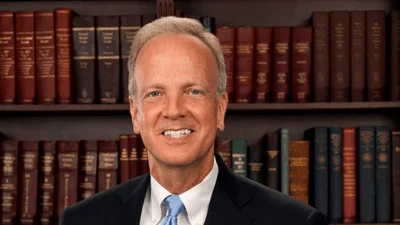Sen. Tim Kaine said he and Sen. Marco Rubio introduced the Caribbean Basin Security Initiative Authorization Act and they cosponsored the Haitian Criminal Collusion and Transparency Act to strengthen regional security cooperation during a Foreign Relations Committee hearing on July 27. Kaine, the chairman of the committee, said the legislation also will sanction political and business elites who empower gangs in Haiti.
"But for those interventions to work, security needs to be reestablished first alongside a Haitian-led solution of a political crisis," he said.
In May, the U.S. State Department issued a level 4 travel advisory for Haiti, warning U.S. citizens not to travel to the country due to "kidnapping, crime, and civil unrest." The State Department asked any Americans currently in Haiti to leave as soon as possible. The State Department website described kidnappings in Haiti as "widespread" and said U.S. citizens are "regularly" kidnapping victims, and their families then have to pay thousands of dollars in ransom for them to be released. The website also said that violent crimes including carjackings and armed robberies are "common."
"As we work with our partners to urgently respond to Haiti's requests for a multinational force to support the Haitian National Police we intend, with congressional support to allocate more than $120 million to strengthen police capacity," Assistant Secretary of State Brian Nichols said during the hearing.
He said gang activity that includes targeted sexual violence, recruitment of minors, widespread kidnappings, and sniper-style killings of neighborhood residents plagues the Haitian people. They also hamper the Haitian government's ability to deliver public services and combat poverty.
Through the Global Fragility Act the U.S. can help build long-term solutions with Haitians, Nichols said. The State Department encourages Haiti's political, economic, religious and civil society actors to work together to resolve the nation's political and security challenges.
"The United States supports the Caribbean Community – CARICOM – efforts to encourage a Haitian-led political dialogue, a process brokered by former prime ministers from the region," he said.
Marcela Escobari of the U.S. Agency for International Development (USAID), said its $150 million annual budget supports economic health and governance work that has been adapted to the security situation.
"Over the last 10 years, USAID's investments in food security have helped over 100,000 farmers adopt new technologies, generating nearly $30 million in new sales and supplying local markets," she said.
Investments in Haitian companies that now sell peanut butter, lime and other products to stores across the U.S. and Canada have brought new jobs and growing incomes, Escobari said. Other investments in water systems provide safe drinking water and support for 160 health clinics has improved public health. Support for community policing and solar energy also contribute to long-term stability, with everything intended to lead to elections that Haitian people can trust, she said.
Nichols said the U.S. has been speaking with potential contributors to a multinational force that would be responsive to requests from the Haitian government as other peacekeeping solutions are assessed.
"But we believe it's urgent to get forces on the ground that can support the Haitian National Police as they carry out missions specifically targeting the gangs that prey on the Haitian people," he said.
He acknowledged for Rubio that finding another Caribbean nation to lead those efforts has been a challenge, but he believed that solution is coming.
State Department deputy spokesperson Vedant Patel confirmed in March that two U.S. citizens had been kidnapped in Haiti and were being held for ransom, Reuters reported. Florida residents Abigail and Jean-Dickens Toussaint traveled to Haiti to visit relatives, but they were kidnapped on March 18 while on a bus from Port-au-Prince. The U.S. Embassy in Haiti prohibited its personnel from traveling outside of Embassy compounds until further notice, citing unpredictable gang violence. Haitian gangs have grown more powerful since the 2021 assassination of President Jovenel Moise. Much of the country is now subject to gun fights between gangs and police officers and other violence.
UN High Commissioner for Human Rights Marta Hurtado said in a speech delivered in Geneva in March that she is extremely concerned about the level of extreme violence in Haiti. "Clashes between gangs are becoming more violent and more frequent, as they try to expand their territorial control throughout the capital and other regions by targeting people living in areas controlled by rivals," Hurtado said. As of March 15 this year, 531 people have been killed as a result of gang violence in Haiti, as well as another 300 injured and 277 kidnapped, according to data from the Human Rights Service of the UN Integrated Office in Haiti.








